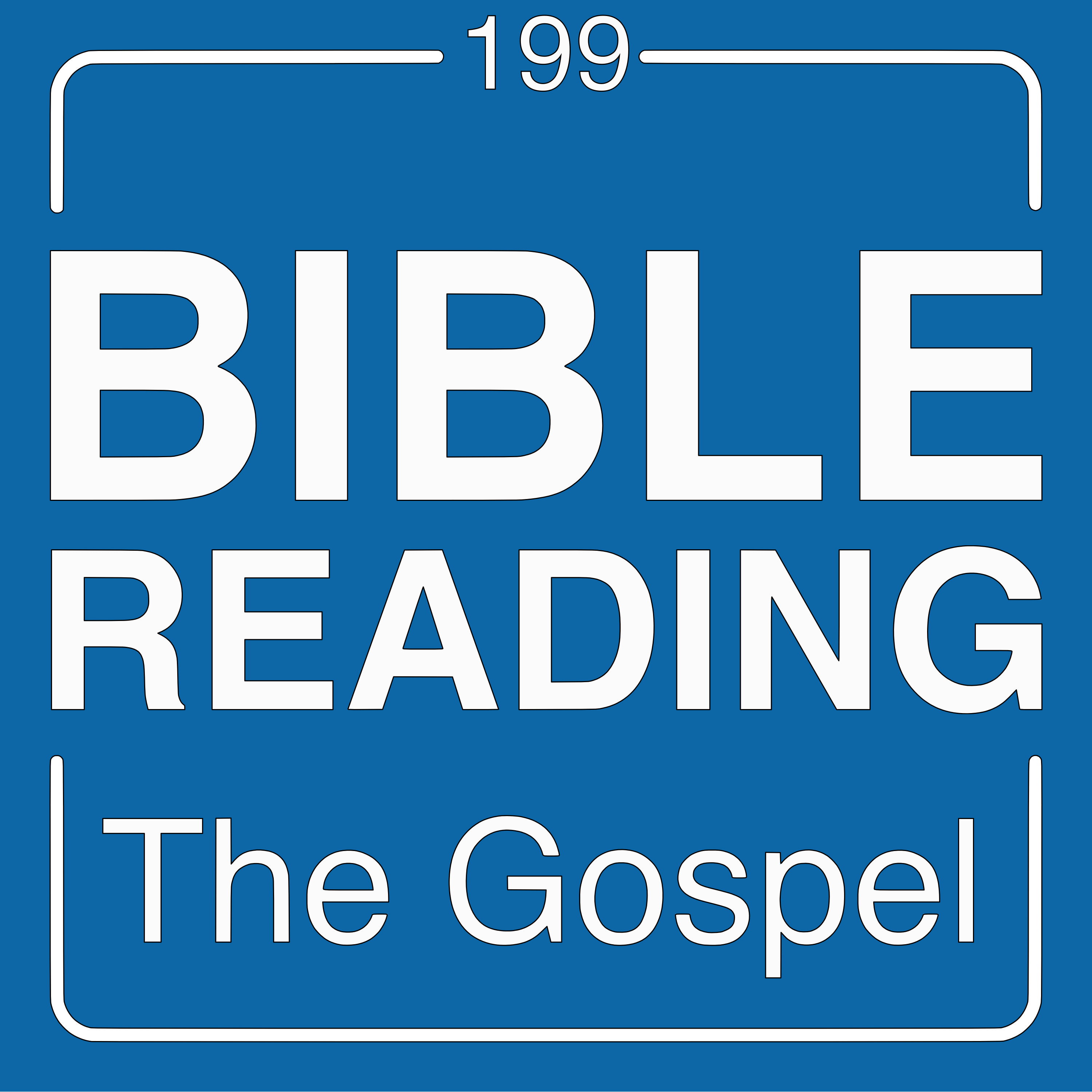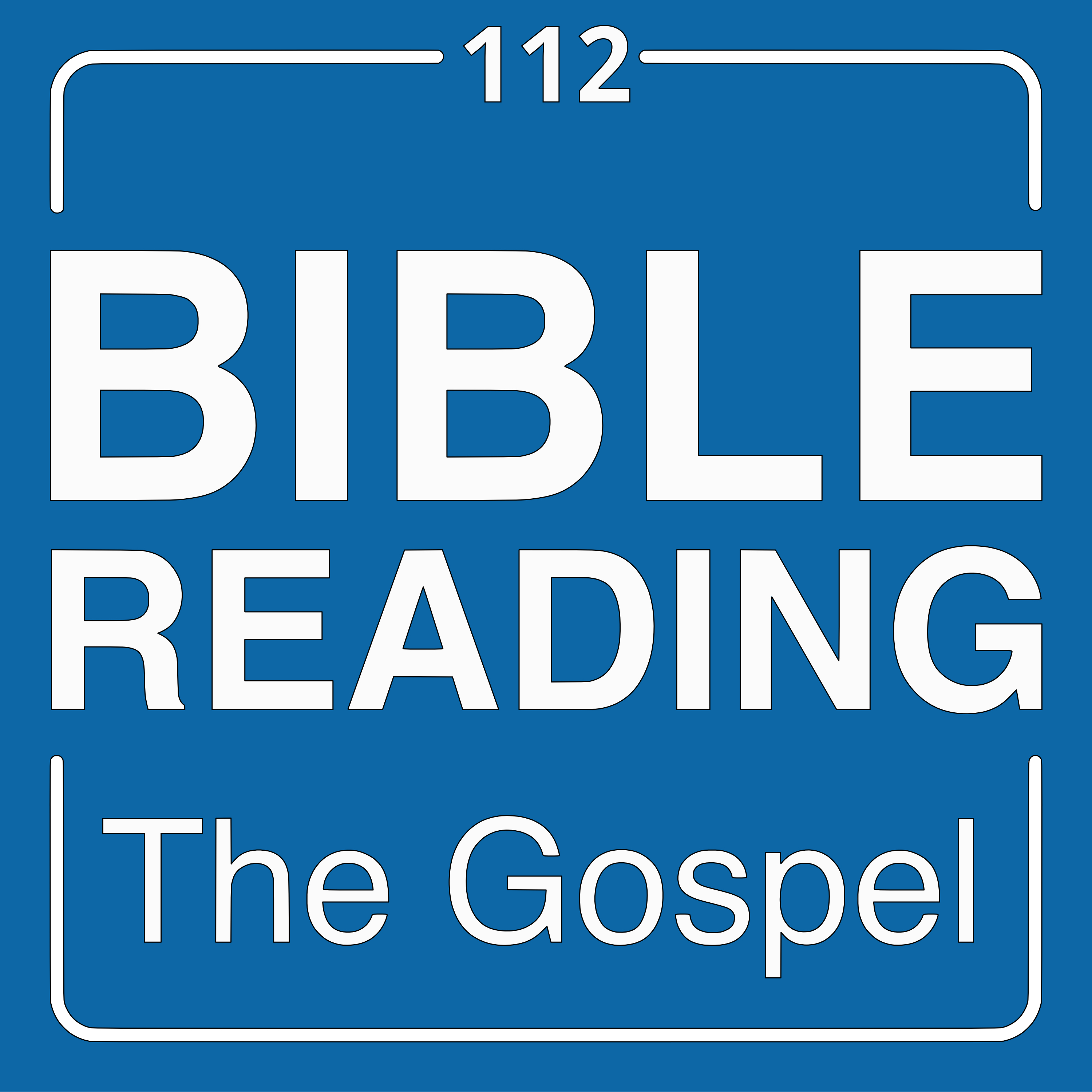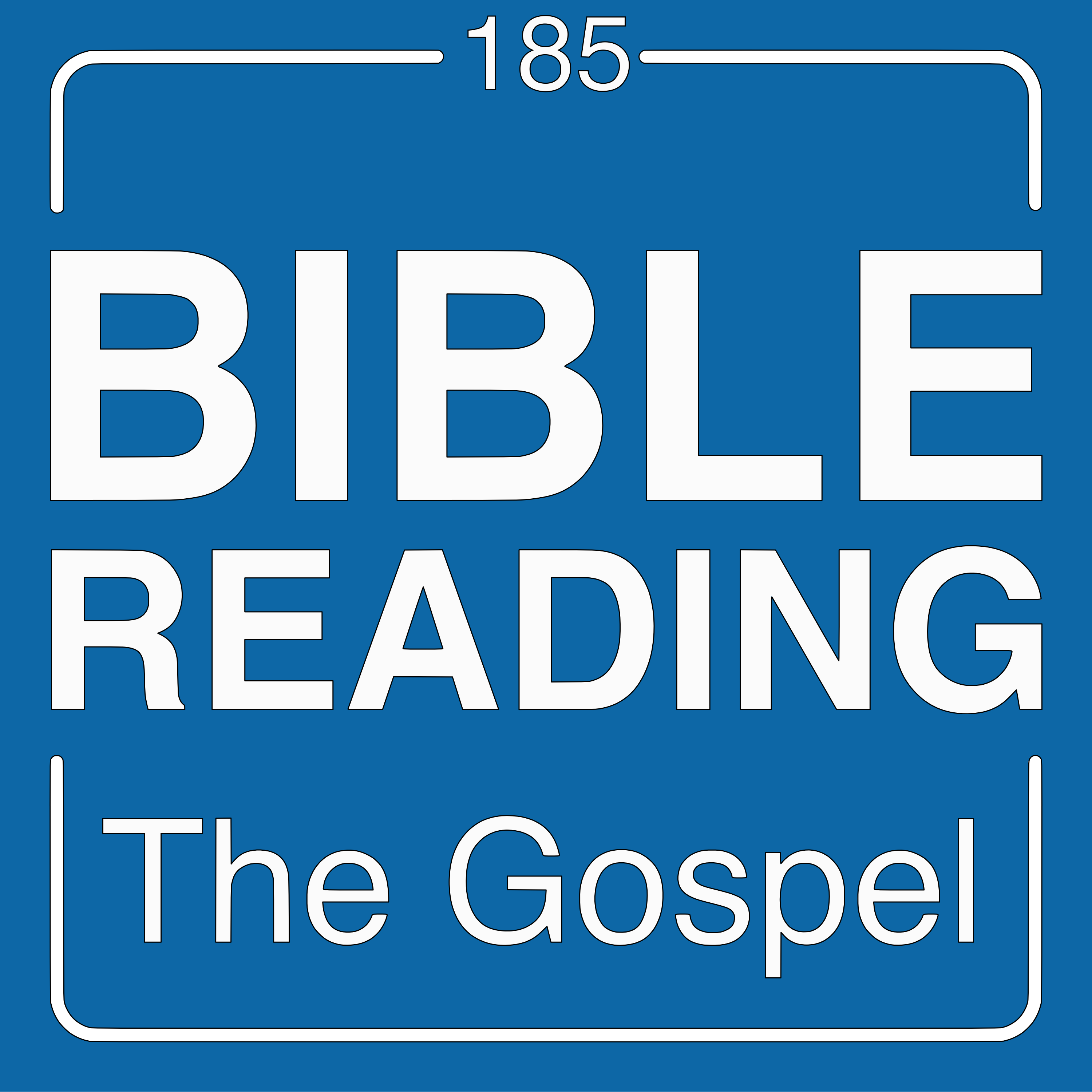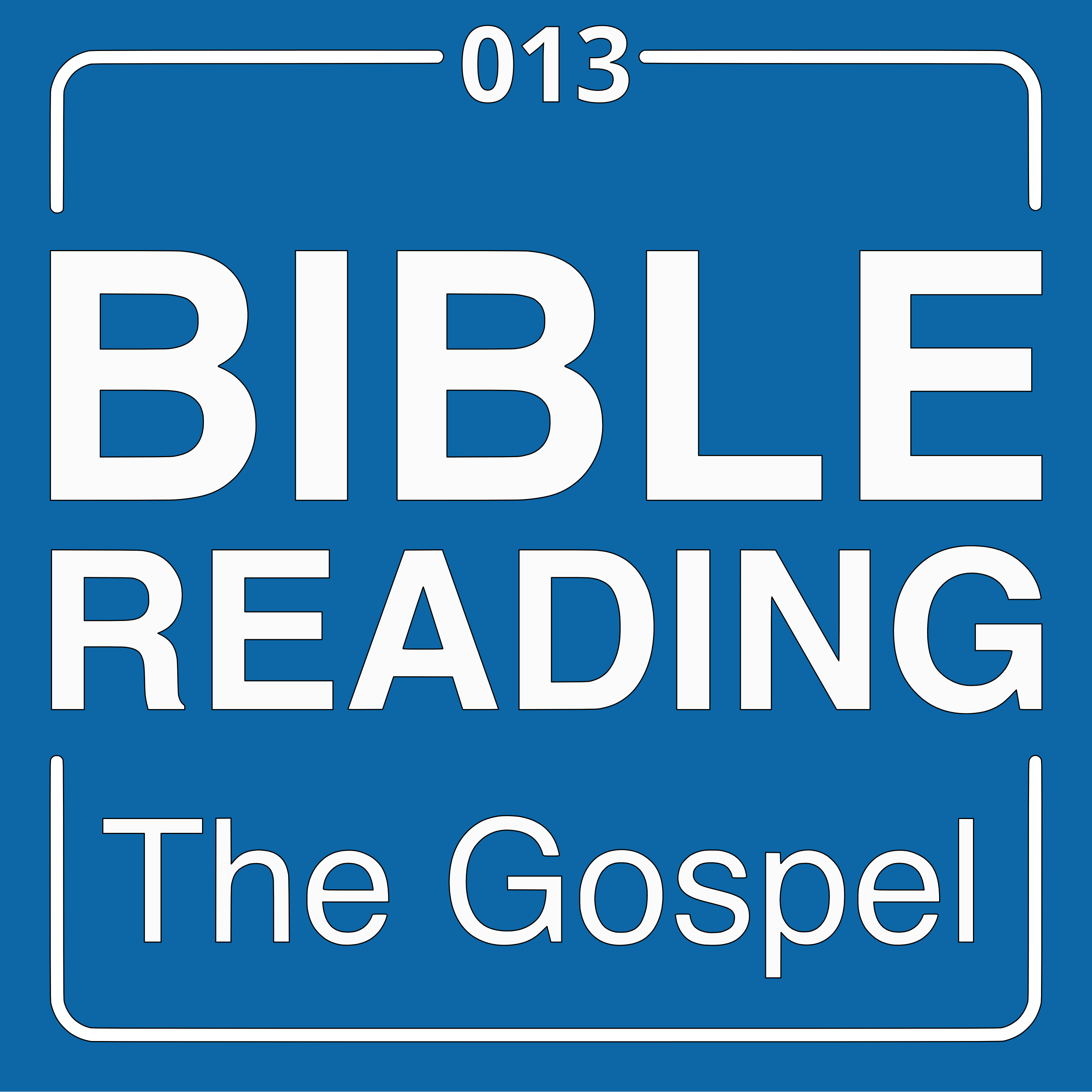Episode Transcript
[00:00:00] Speaker A: Foreign Hi, I'm Josh.
[00:00:24] Speaker B: And I'm Gabriel.
[00:00:26] Speaker A: And today on reading the Gospel, we're. We are taking a look back.
We want to start going back to episode three where we talked about the four components of the gospel.
A basic review.
What are the four components of the gospel?
[00:00:43] Speaker B: The Gospel is more than just a story of Jesus Christ.
It is the revealed will of God about our salvation.
And in this respect, the Gospel has four major components.
First is that we have been created for eternal life, for joy, for peace, for happiness.
That is God's plan as revealed in the Garden of Eden.
The second component is the fall into sin, Adam and Eve, and also by extension, all of us, the whole humanity. We lost the joy that we experience in the presence of God.
[00:01:23] Speaker A: We lost.
[00:01:24] Speaker B: We lost that peace in the heart. And of course, we lost eternal life. We deserved the opposite. That is the wages of sin is death, says the apostle Paul.
Step number three is in that amazing verse John chapter three, verse 16, that God loved us so much that instead of punishing us, he decided to give his only Son to die in our place.
That is step number three, that Christ died for us.
And step number four, it's in the same verse that if we believe in him, we have eternal life.
[00:02:02] Speaker A: So step number four and step number one are kind of the same thing. That we have this restoration. It's the full cycle, exactly, that we are created for eternal joy, life, peace.
And so Christ's death brings restoration to a break that happened when we sinned.
[00:02:23] Speaker B: And this is why the death of Jesus Christ is a very important component of the gospel.
If we proceed from the Gospel of Matthew, which is like a bridge between the Old Testament and the New Testament.
As we go further to the Gospel of John, you see that the majority of the Gospel of John is focusing on the last events around crucifixion, the last week and the crucifixion itself. More than half of the Gospel.
[00:02:56] Speaker A: If Jesus had to die, does that mean that the Pharisees and the Jews had no choice? They were predestined or predetermined to be against God. What would have happened if they had been converted? If Caiaphas had become a disciple of Jesus? If the religious leaders became a disciple?
[00:03:19] Speaker B: There is a difference between God's pre knowledge and predestination.
Yes, the word predestination is in the Bible, but the Bible says that all people are predestined for eternal life, including Pilates and Roman soldiers who crucified Jesus Christ and the Jewish leaders.
Jesus Christ had to die because without death, there is no shedding of blood.
And according to the Old Testament, the life is in the blood.
But Jesus Christ could have died differently. In fact, In John chapter 10, he alludes to that when he says, I lay my life, nobody can take it away from me.
It just happened that way because. Because of our corrupted human nature, because it's so easy for us to be bent towards sin.
And Satan worked with a Jewish leader. They collaborated with Satan to annihilate Jesus Christ, to remove him from among the living.
[00:04:27] Speaker A: Changing topics a little bit.
Why do we have four Gospels? I mean, we've just spent long time on this project going through events chronologically, the events of the Gospels.
And we've been jumping back and forth between the different gospels. Why do we have four?
[00:04:47] Speaker B: For the same reason we may have multiple witnesses for a trial.
And you have three kids and ask them what happened and you are going to get some, you know, slightly different versions of the same event.
All of them are truthful, all of them have the same purpose, to tell you exactly what they saw, what they heard, what they experienced.
But because they are different human beings, they may have a slightly different version of the story or they may see the same story from a different perspective.
And I think that having more witnesses gives credibility.
In the Old Testament, it says that every major decision, especially you know, to condemn someone, should be decided based on two or three witnesses.
[00:05:41] Speaker A: Yeah, and the other thing is the audiences are different.
So different Gospels are writing to different audiences and they're, they're focusing on their needs and, and their understandings.
And so I'm glad we have four. And I agree, like you said, having the multiple witnesses just corroborates the story, the account.
[00:06:09] Speaker B: The Bible scholars believe that the Gospel of Matthew was written primarily for a Jewish audience because the writer assumes that the readers know quite well some Jewish holidays and Jewish cultures concepts.
The Gospel of Mark, who was Peter's assistant, and Peter traveled all the way to Rome to start the church in Rome to preach the Gospel there.
And Mark took notes from his sermons and put them together into the, into the. What was the oldest and the first gospel?
It was. And based on the content and the language, it was addressed to a younger generation, those who knew less about the Jewish holidays or concepts.
The Gospel of Luke was written not by an eyewitness, but he did research and he went to talk to the eyewitnesses and he has some stories which are not in any other gospel because the other disciples were not present there when those stories were happen.
For instance, some songs under divine inspiration produced by Mary or Elizabeth or, you know, the priest or someone else.
And the last Gospel, the Gospel According to John, second century historians, they said that after John received the book of Revelation on the island called Patmos, and he came back to his church in Ephesus, to his churches, because he was like a bishop overseeing a number of churches.
And the disciples said, look, we are about to lose you now. You are back. You are the longest living from the 12 disciples. How about if you tell us the story of Jesus once again? We're going to take notes very carefully and we'll send it all over the populated world in the Roman Empire so everyone will know that this is true.
And this is why at the end of the Gospel of John, we saw in the previous episode, there is a collective author popping up just in one verse, and it said, we testify, most likely the elders from that church in Ephesus who heard John telling the story, and they testified that is the genuine, the true story.
We see there are different audiences, and because of that, one side of the story might speak better to one audience than to the other.
[00:09:02] Speaker A: Transitioning again.
We started this series pretty consistently asking questions.
What does this text, as we were reading, tell us about God?
How does this story speak to you and what are you going to do about it? And we want to touch, tie back in with this at the end. I know towards the end we weren't bringing this up every time, but this should be part of our reading. When we come to God, wherever we're reading in the Bible, we should be asking similar questions about this. When we read a passage, what is this telling us about God?
And how is this story speaking to us today? I can't tell you how many times I'll read a verse in the Bible. And I've read it a million times before.
Not literally, but I've read it over and over again. But on this day or this particular reading, it speaks to me in a way it had never spoken before.
[00:09:59] Speaker B: Because we are changing. We are growing, we are aging, our experience is changing. And we see the same reality, the same event from the perspective of a new stage or experience in our life.
[00:10:17] Speaker A: And I think the most important maybe of these questions is, what are we going to do about it?
Most of my answers to this are surrender. I'm going to surrender to God and allow him to work within me. Because as I do that, he creates in me a new person and changes who I am, changes my desires, changes my wants, my goals, everything. And that's what I love about God is. He works, he's active. This is not a dead book. This is something that changes lives.
[00:10:52] Speaker B: One of the best ways to read a book, and primarily the Bible or the Gospel, is immersive reading.
When you become part of the story and you identify with one character, sometimes with Jesus.
Sometimes I can identify with one of the disciples, the one who doubted the other one who asks questions. Sometimes I'm impatient and I jump to a conclusion, or I'm the first to ask a question or the first to do something without thinking too much. And it's so easy for me to identify with Peter.
Sometimes I feel like not talking. I'm staying away from other people. And I'm a little bit more shy. I can identify with other disciples who are exactly in this situation, or that woman who was healed by the presence of Jesus Christ, who touched his garment from behind, and it seems that she was a shy person. Jesus said, who touched me?
And Peter said, everyone is, you know, it's so crowded here. No, no, someone touched me differently, said Jesus, because power left me.
And I can identify with that woman. When I read that story, I feel impressed to share my story.
[00:12:13] Speaker A: Yeah.
[00:12:14] Speaker B: Even if I'm not a very outspoken person.
[00:12:17] Speaker A: And while we're all unique, while there's never been another Gabriel Bardin or another Joshua void in the history of the human race, there is nothing new under the sun, as Solomon says. And so the experiences we live through, while it might involve technology or while it might involve stuff that wasn't around back then, really, it's not different. And we can learn from the examples of those who went before us and that were written down in the Bible. And it can help us to see how God can work through the problems and trials.
[00:12:54] Speaker B: We see that the human nature fundamentally did not change since the time of the disciples or even from the time of Abraham or Moses. We are in a similar human condition. Just the technologies has changed. They are riding a mule, we are riding a Mercedes or whatever. Whatever.
But what is above is essentially the same.
[00:13:18] Speaker A: Yeah. Let's pray.
Father, we are thankful for the Bible you've given us.
[00:13:23] Speaker B: Amen.
[00:13:24] Speaker A: That it reveals Jesus and it points to us. And. And we're thankful that, that it's active and living.
And Father, I pray that we'll be able to experience you each and every day.
[00:13:36] Speaker B: Amen.
[00:13:37] Speaker A: That we will be able to be a witness for you, be able to share with others how you have impacted our lives.
And so we can add to the ever growing database of knowledge about you.
Help us to continually come back to the scriptures to continually ask questions to be students. Always. In Jesus name we pray. Amen.
[00:14:01] Speaker B: Amen.
[00:14:07] Speaker A: Sam.



